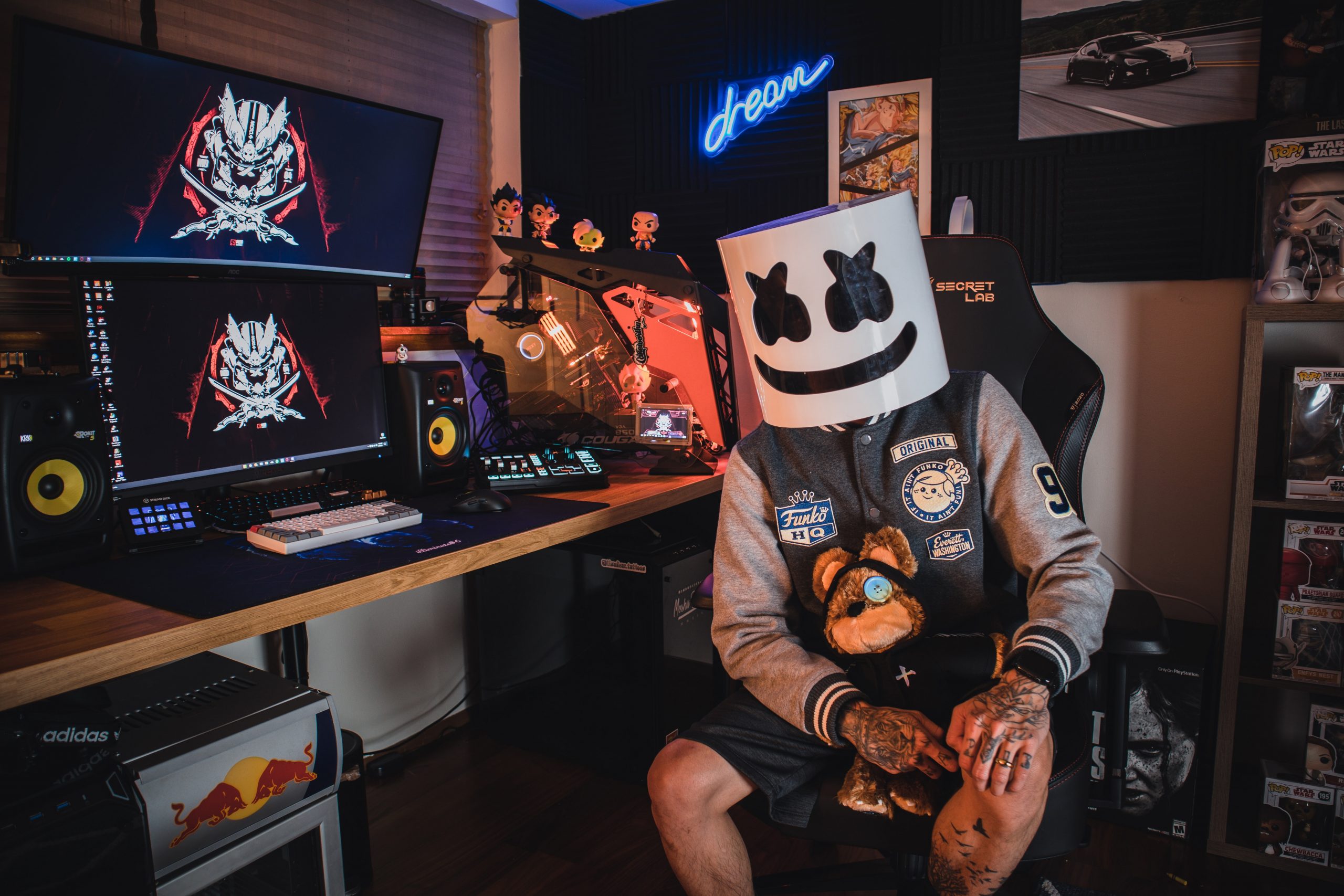New music revenue streams: The phenomenon of music and video game streaming
Business-savvy music and gaming professionals have long noticed that music and gaming are becoming increasingly interlinked. However, the events of 2020, most particularly the COVID-19 pandemic, has led to an unprecedented interest in the rise of the music-gaming partnership, powered by live streaming and artificial intelligence. These technologies are quickly becoming staples not only in the gaming industry but also in the global music community.
Let’s have a look at how two seemingly different industries managed to join forces and create one of the most interesting legacies of 2020.
Twitch: The Livestreaming Platform that Characterised 2020
In 2020, live streaming platform Twitch saw a record increase in numbers (1.7 billion hours of live streaming content) and grew 83%. Furthermore, its Music and Performing Arts category quadrupled in number and popularity (385%, to be exact). These numbers have cemented Twitch’s importance in an industry that previously depended on live performances and touring.
Twitch seems to have satiated audiences’ needs for live music by temporarily replacing it with live streams and behind-the-scenes content. However, this growth wasn’t simply a by-product of the pandemic. Rather, the Twitch team has been working on making inroads in the global music industry for years. The pandemic proved to be the catalyst that led to Twitch’s explosion.
In an interview with The Guardian, Twitch’s head of music, Mike Olson explains this statement further, “Even before social distancing began, a vibrant music scene thrived on Twitch. It’s been small but mighty, with a handful of artists growing followings in the community, similar to the way new artists gain traction on SoundCloud.”
Electro-pop musician HANA, as well as the multidisciplinary visionary artist Grimes, have already used Twitch as a launchpad for their albums. Other musicians have followed in their footsteps, and have added Twitch to their artistic CV as a viable live streaming platform.
While a decent-sized group of musicians are using Twitch to live stream themselves playing games and interacting with fans through gaming, others are using Twitch as a “behind the scenes” platform that empowers them to connect with fans on an informal yet still more organised level than, say, Instagram Live.
Twitch’s tiered subscription services have facilitated the artist-fan relationship even further, providing an alternative revenue stream for artists whose income, and sometimes, careers, have been demolished in an instant due to the pandemic’s effect on the touring industry. For a fee, fans can chat with their favourite artists and gain access to exclusive, live content. All of these features have enabled artists to expand beyond the music and to explore other areas such as hosting, comedy skits, cooking lessons and whatnot – which, collectively, all contribute to an artist’s brand. More importantly, this increasing demystification brought about by live streaming continues to blur the lines between traditional “artist” and the social media-driven” content creator”.
Soundcloud’s partnership with Twitch has continued to cement Twitch’s position as a key player in the post-Covid music industry. This partnership means that SoundCloud artist can jump the queue and become “Affiliate” content creators on Twitch, enabling them to monetise their streams. This, of course, comes at a price: artists must subscribe to SoundCloud’s own paid tiers – SoundCloud Pro, SoundCloud Premier, and Repost by SoundCloud artists. Once the artist receives SoundCloud’s seal of approval, they can fill out a form and fast track their way to Twitch’s Affiliate programme.
How MNCs are keeping up with this trend
Multinational corporations have quickly noticed this music-gaming collision and are scrambling to come up with ways how they can have a piece of this lucrative pie.
April 2021 marked Sony Group Corporation’s $200 million investment in Epic Games. Furthermore, Sony Group Corporation has created a new subsidiary, Sony Immersive Music Corporation, which aims to continue investing in immersive experiences using Epic Games’ Unreal Engine. While this may seem like a hefty investment, this is nowhere near as lucrative as the Chinese multinational technology conglomerate, Tencent Holdings’s USD 330 million investment in Epic Games back in 2012. Thanks to this deal (which at the time was quite progressive), Tencent now owns a 40% stake in this lucrative game development company.
Moreover, Twitch was acquired by Amazon for USD 970 million back in 2014 and is now an Amazon subsidiary. Amazon has synergised its services with Twitch, meaning that Amazon Prime users can access Twitch Prime, which has exclusive content for Amazon Prime users. Amazon and Twitch also announced the launch of an innovative Music Directory as well as a brand new Head of Artist Relations (North America) position in November 2020, further highlighting its music industry-adjacent ambitions.
Epic Games’ Fortnite, Travis Scott and Beyond
The Travis Scott-Fortnite collaboration, entitled “Astronomical”, ushered in a new era of AI-powered performances. In addition to 12.3 million concurrent players, more than 27.7 million viewed the concurrent, tie-in events.
This collaboration has undoubtedly shown that new media is quickly adapting to the lack of live performances and that AI technologies are now capable of replicating physical experiences that appeal to a diverse range of audiences.
Furthermore, the immense popularity of Fortnite amongst Gen Zers has given us a glimpse into a future where live-streamed and in-game performances will potentially outshine the traditional concert experience. Fortnite Chapter 2 Season 6 is already establishing further collaborations with global artists who want to try their hand at mining this virtual El Dorado. Recently (5/4/21), Bruno Mars partnered up with Epic Games to create a new Fortnite emote that features some signature dance moves alongside a Bruno Mars voice clip.
What’s next?
There’s still a long way to go when it comes to copyright infringements and live streaming platforms such as Twitch. The platform is still working on resolving automatic copyright infringement issues. The high profile case of Grammy-nominated guitarist Herman Li (DragonForce) continued to highlight this contentious issue. In a nutshell, Li ended up losing his Twitch account for a week because of alleged copyright infringement – when in reality, he was playing his own band’s music.
While live streaming is still in its comparative infancy, it has already implemented meaningful fan monetisation structures and a creator-viewer relationship that empowers creators to become fully or (at least) partly dependent on their content or art. Who knows – maybe in a couple of years, increasing intercultural virtual exchanges will make it even more commonplace for international brands to have their own virtual arenas that can unite global audiences on one virtual platform, eliminating the additional expenses associated with localised traditional marketing avenues and touring.
Photo by Kadyn Pierce on Unsplash






